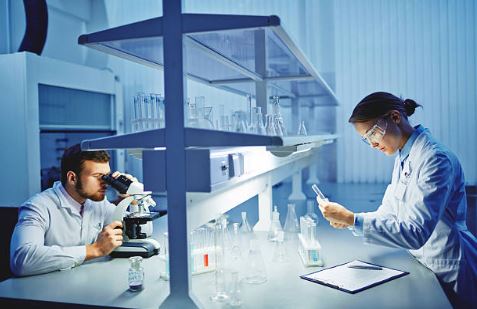It is rightly said ‘Prevention is better than cure’, it is wise to stop something happening or detecting early and that’s what biomarkers do, indicating the risk of particular disease for betterment.
The biochemical characteristics measured that determines the particular physiological condition of a human is called as biomarkers and this has been a great help for the healthcare industry for investigation and making of laboratory medicines and drugs to manage chronic diseases and disorders. It’s a great advancement in disease management and improvement in patient’s outcome.
The buzzword biomarker has gained a lot of momentum in medical industry in the past decade, while the current trends in biomarker research and development has definitely caught our eye. It’s a great contribution to the present and future of clinical trials and drug development industry.
Let’s explore
The field of biomarker research has dramatically expanded now, comprising drug discovery, clinical markers of efficacy and therapeutic index, toxicity, diagnostic investigation development and exposure to pollutants in environment.
The lack of efficacy which resulted in major failures during 2008-10 has now been assessed whereby with validated biomarkers that correspond to efficacy will enhance the rate of success in clinical trials.
Probably the most noticeable change in biomarker research and development is the workplace of the biomedical scientists. The marketplace is now the whole world. The workplace has transformed from local to global. Support of external expertise is now no more a problem and is attainable with great speed and within budget.
New and innovative biomarker discovery technologies have cropped up and have dramatically evolved the clinical trials and information that is crucial to enhance human health and personalised medicines.
One trend that has drastically revolutionised the landscape of biomarker research and development is next generation sequencing which is versatile analysis tool for medical and biological research. Protein, peptide, and metabolite isoforms are analysed to identify deep perturbations of biological systems with an outcome of varied observations on varying disease conditions.
The higher level of knowledge in biomarker technology has led to transformation of disease management to healthcare management.
The early detection of chronic disease like cancer has increased the chances of survival and also help to improve life of thousands of patients around the world.
Personalised medicines to correctly suit particular patients have increased. Genomic data is used to find out the subsets of patients so that they respond to relevant therapies.
As per the current trend, biomarker can also be used to reflect the exposure to different environmental elements in epidemiology and toxicology.
The advancement in biomarker research also aids in determining potential side effects of patient like in toxicity.
Various types of assays can be used ranging from low technology end to high technology end during biomarker development.
Despite of few challenges, biomarkers have become a core part of medical industry as it certainly has a great scope. The knowledge of alterations and modifications in biomarker is quite insufficient, a general understanding of this is necessary prior to the effects of treatment.





